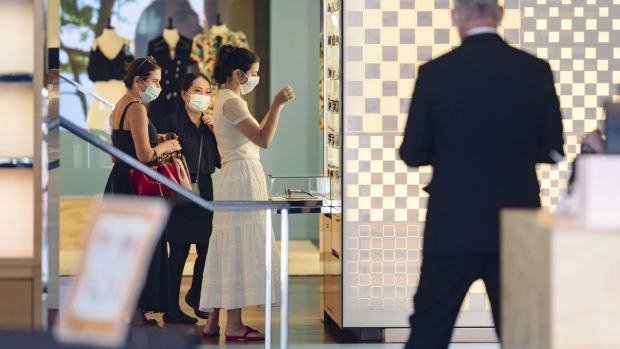Jul 16, 2020
U.S. retail sales exceeded forecast in June after record May
, Bloomberg News

U.S. retail sales exceeded forecasts in June for a second straight month as more businesses reopened and expanded jobless benefits padded the wallets of the unemployed.
The value of retail purchases increased 7.5 per cent from the prior month after an upwardly revised record 18.2 per cent surge in May, according to Commerce Department data out Thursday. The median estimate in a Bloomberg survey of economists called for a 5 per cent gain for June.
Coming Back
As states restarted their economies and millions of Americans headed back to work, consumers opened up their pocketbooks more freely. The pickup in June brought the value of retail sales about in line with pre-pandemic levels, supporting businesses and overall economic growth.
Nonetheless, demand risks remain, most notably a resurgence in virus cases that has led states to pause or even backpedal reopening plans.
Data from the Labor Department on Thursday showed first-time applications for unemployment insurance last week were higher than projected and remain about double the peak in the previous recession.
The retail sales report showed 10 of 13 major categories increased, reflecting solid gains in furniture, electronics and appliances, clothing and sporting goods. Purchases at apparel shops jumped 105.1 per cent, while electronics and appliances outlets saw a 37.4 per cent gain.
With more restaurants and bars having opened to dine-in customers, receipts climbed 20 per cent in June after a 31.5 per cent advance a month earlier. At the same time, sales at grocery stores decreased 1.6 per cent.
However, some backpedaling in states affected by a pickup in virus cases will inevitably spur another wave of layoffs as recently opened businesses must again close their doors.
Earlier this week, California, the nation’s most populous state, ordered all inside dining and other indoor entertainment closed. Job openings across all 50 states have declined over the past two weeks, according to jobs-website Glassdoor Inc.
Also, the one-time stimulus checks and the extra US$600 in weekly unemployment benefits that have effectively cushioned incomes amid widespread layoffs are running dry.
With many of the checks spent and the US$600 federal top-up expiring at the end of the month, consumers are likely to pull back on discretionary spending without additional government support.
Purchases at auto and parts dealers also posted a robust gain of 8.2 per cent. Excluding automobiles, retail sales rose 7.3 per cent.
The sales data don’t capture all household purchases, so personal-spending figures that include outlays for all services will offer a fuller picture on July 31.


